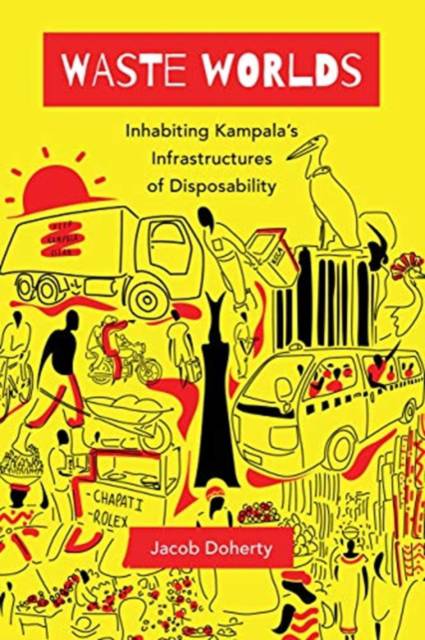
- Afhalen na 1 uur in een winkel met voorraad
- Gratis thuislevering in België vanaf € 30
- Ruim aanbod met 7 miljoen producten
- Afhalen na 1 uur in een winkel met voorraad
- Gratis thuislevering in België vanaf € 30
- Ruim aanbod met 7 miljoen producten
Zoeken
€ 161,45
+ 322 punten
Uitvoering
Omschrijving
Uganda's capital, Kampala, is undergoing dramatic urban transformations as its new technocratic government seeks to clean and green the city. Waste Worlds tracks the dynamics of development and disposability unfolding amid struggles over who and what belong in the new Kampala. Garbage materializes these struggles. In the densely inhabited social infrastructures in and around the city's waste streams, people, places, and things become disposable but conditions of disposability are also challenged and undone. Drawing on years of ethnographic research, Jacob Doherty illustrates how waste makes worlds, offering the key intervention that disposability is best understood not existentially, as a condition of social exclusion, but infrastructurally, as a form of injurious social inclusion.
Specificaties
Betrokkenen
- Auteur(s):
- Uitgeverij:
Inhoud
- Aantal bladzijden:
- 288
- Taal:
- Engels
- Reeks:
Eigenschappen
- Productcode (EAN):
- 9780520380943
- Verschijningsdatum:
- 14/12/2021
- Uitvoering:
- Hardcover
- Formaat:
- Genaaid
- Afmetingen:
- 152 mm x 231 mm
- Gewicht:
- 476 g

Alleen bij Standaard Boekhandel
+ 322 punten op je klantenkaart van Standaard Boekhandel
Beoordelingen
We publiceren alleen reviews die voldoen aan de voorwaarden voor reviews. Bekijk onze voorwaarden voor reviews.











